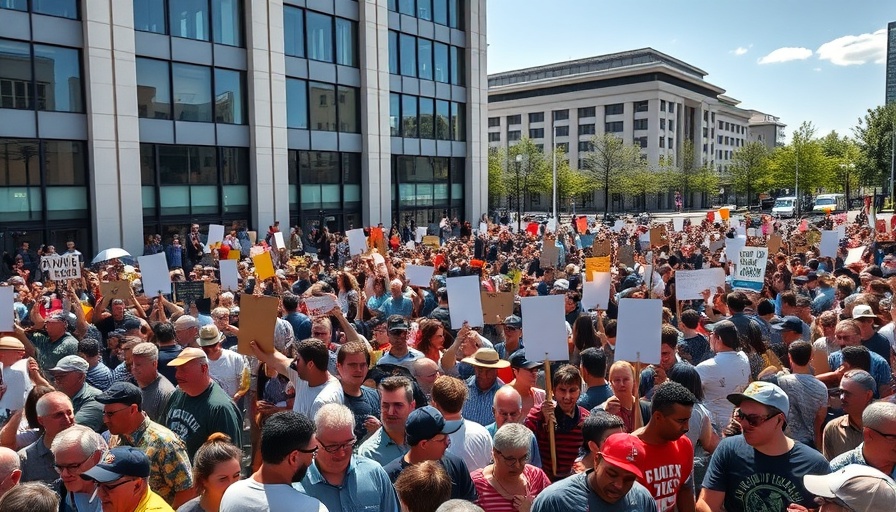
Hundreds Unite in San Jose and Oakland to Protest ICE
On Monday evening, hundreds gathered in San Jose and Oakland, mobilizing to oppose the deportation efforts led by U.S. Immigration and Customs Enforcement (ICE). This local outcry comes on the heels of significant protests in Los Angeles, where President Trump, bypassing Governor Gavin Newsom’s authority, deployed 300 National Guard troops to assist ICE in enforcing immigration laws. Governor Newsom condemned this move as an inappropriate use of state resources.
Community Response and Legal Implications
California Attorney General Rob Bonta announced plans to take legal action against the federal government regarding the use of the California National Guard in Los Angeles. This decision reflects a growing dissatisfaction among California leaders with the direct military involvement in immigration enforcement, sparking fears about the implications for local communities and their rights.
Voices of Protest: Unity and Calls for Action
In San Jose, attendees held signs with messages like “abolish ICE” and “immigrants make America great!” demonstrating a strong desire for change. The crowd, filled with music and spirit, heard from several speakers, including San Jose City Councilmember Pamela Campos, who expressed that “we are experiencing an attack on our community.” Campos emphasized leading with compassion and countering the misinformation surrounding immigrant communities in the U.S.
History of Protests and Current Events
These protests are part of a wider movement that has fed into recent weeks, marked by a notable uptick in local immigration enforcement actions. Just a week prior in San Jose, another protest took for the arrest of several immigrants. This has heightened the sense of urgency among activists, who increasingly view activism, not just as opposition to policies but as a call to engage in the political process.
Community Voices: A Call for Unity and Resistance
Participants expressed deep concerns about authoritarian practices, particularly regarding military involvement in civil affairs. Lisa Claxton, a protest organizer in Oakland, shared her fear of violence becoming a tool for the suppression of dissent: “I worry about authoritarianism,” she remarked. Organizers highlighted the need for sustained action beyond mere protests, rallying individuals to actively participate in local governance.
Challenges Ahead: Housing and Homelessness
Amid calls for justice, the protests in San Jose also addressed the interconnected issues of homelessness and housing inadequacy. Protesters highlighted city policies insufficient to protect vulnerable populations, questioning the moral implications of prioritizing enforcement over providing shelter. A skit that included a humorous portrayal of Batman demanded that city leaders focus on building homes rather than perpetuating cycles of poverty with sweeps of encampments.
Inspiring Change Through Collective Action
As the protests continued, the atmosphere shifted from mere discontent to empowerment. Attendees were motivated to “change the rules to the game,” calling out to their peers to influence policy through collective grassroots initiatives. Speakers echoed the sentiment that meaningful impact requires organized presence in local city halls, emphasizing that such unity renders communities powerful.
Final Thoughts: The Fight Continues
The demonstrations in San Jose and Oakland indicate a rising tide of activism against U.S. immigration policies, but they also illuminate the strength found in community. As local leaders and citizens alike unify in their efforts, they remind us that societal change begins with informed, compassionate, and persistent action. In these divided times, solidarity is a critical path forward.
 Add Row
Add Row  Add
Add 




 Add Row
Add Row  Add
Add 

Write A Comment